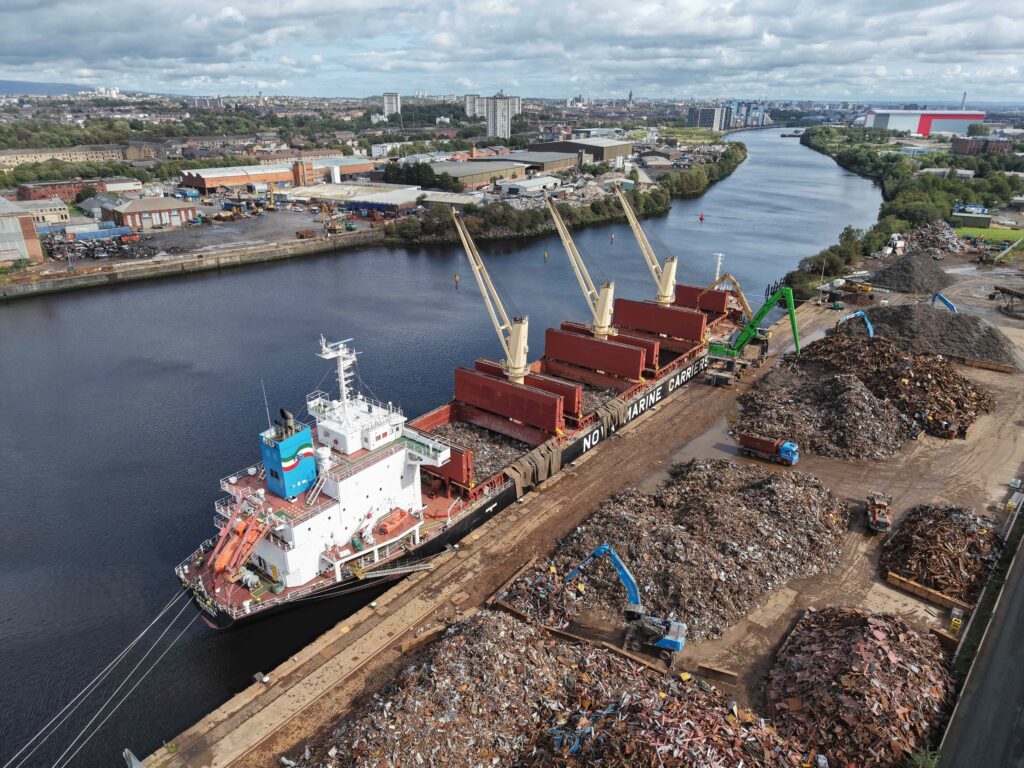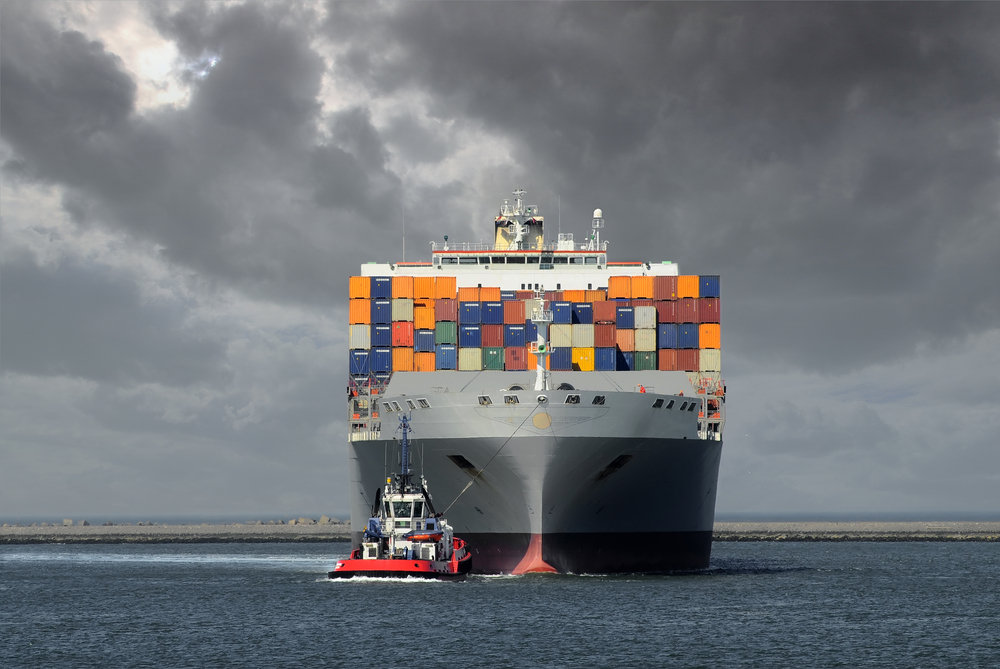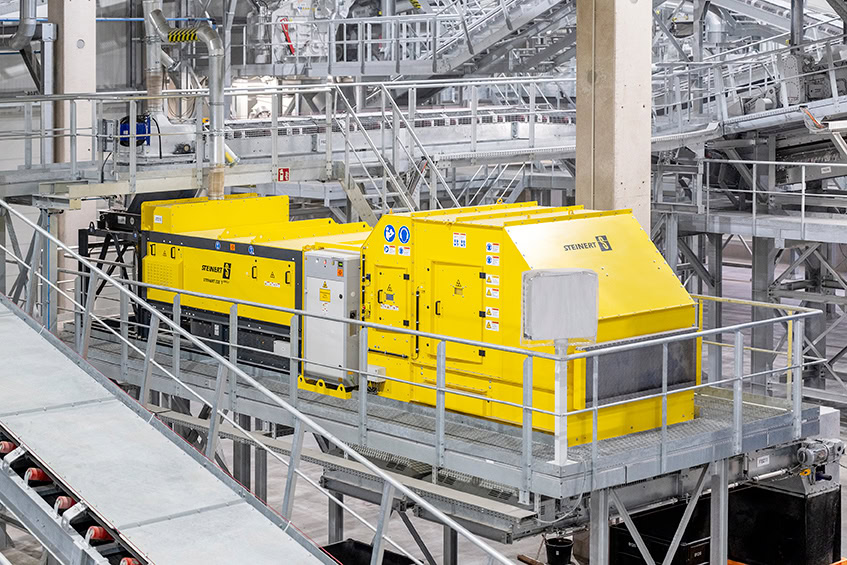The works have included extensive dredging at the site’s berth, allowing vessels of up to 25,000 tonnes to dock directly.
A £2 million Sennebogen crane has also been installed, which is capable of handling six to seven tonnes in a single grab.
The company said the improvements will “transform” operations at the Clyde-side facility, boosting efficiency, expanding output and significantly reducing the site’s reliance on road haulage.
Targets set for Glasgow site
The site, which has been in operation for over 30 years, has historically shipped around 150,000 tonnes of metal per year, although output dipped following S. Norton’s acquisition of the facility at the end of December 2023, when redevelopment work was required.
Over the past year, volumes rebuilt to around 110,000 tonnes, with the company now targeting a return to 150,000 tonnes and ultimately increasing throughput to 200,000 tonnes per annum.
The company handles a wide range of ferrous and non-ferrous metals, from copper, brass, aluminium and lead to heavy structural scrap sourced from demolition projects.
All metals handled at the Glasgow yard arrive by road and are processed on-site through shredding, shearing, gas cutting and baling.
The upgrade means that once sorted and prepared, metals can now be loaded directly onto deep-sea vessels, avoiding the need for additional road haulage to larger ports.
Commenting on the expansion, Jim Walker, Commercial Manager for Scotland, said: “This investment is a demonstration of S. Norton’s commitment to the region and to the future of sustainable recycling.
“The improvements we’ve made are not only about increasing what we can process, but also about transforming our environmental impact and supporting Scotland’s role in the global circular economy.”
Shift from short-sea to deep-sea shipping
The dredging works have enabled the site to move from serving the short-sea market – traditionally shipping to Spain and Portugal – to handling deep-sea vessels and opening up routes as far afield as Turkey and Egypt.
Site Manager, Stevie Lambie, said: “The ability to dock ships up to 25,000 tonnes is a game-changer for the facility and the regional economy, substantially expanding the scope and reach of our operations.”
Walker added: “The shift from short-sea to deep-sea shipping is a leap forward for our sustainability credentials. Not only is it more economical and efficient, but it’s also a much better outcome for the planet.
“Our investment means less traffic on the roads, lower emissions and a truly circular recycling process where material goes directly from yard to furnace anywhere in the world.”









Subscribe for free